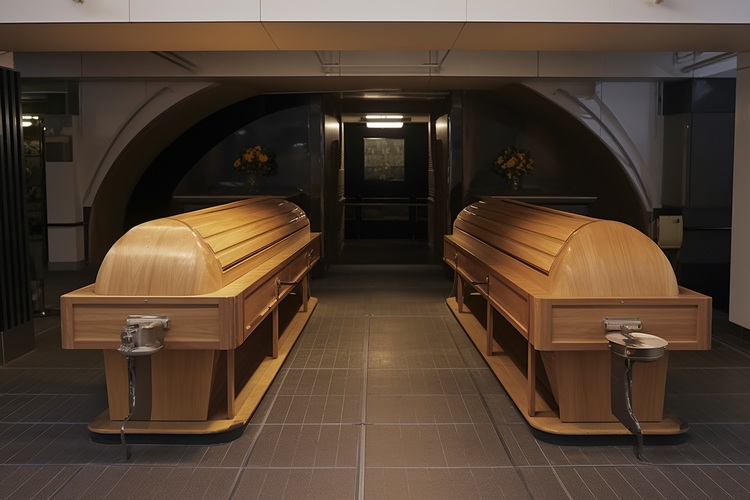Funeral expenses in India 2025: A resource for making educated decisions
Planning for funeral expenses in India requires understanding the various costs involved, from traditional cremation ceremonies to modern memorial services. With diverse cultural practices across the country, funeral costs can vary significantly based on location, religious customs, and service preferences. This guide provides comprehensive information about funeral-related expenses in India for 2025, helping families make informed financial decisions during difficult times while honoring their loved ones with dignity and respect.

Understanding funeral costs in India is essential for families preparing to honor their departed loved ones. The country’s rich cultural diversity means funeral practices vary widely, from Hindu cremations to Christian burials, Islamic traditions, and other religious customs. Each tradition carries its own set of expenses, and being informed about these costs helps families plan appropriately without facing unexpected financial burdens during emotionally challenging times.
What factors influence funeral service costs in India?
Several elements determine the overall expense of funeral services across India. Location plays a significant role, with metropolitan areas like Mumbai, Delhi, and Bangalore typically charging higher rates than smaller towns and rural areas. The type of service selected—whether a simple cremation, elaborate ceremony, or full burial service—directly impacts the final cost. Religious customs also influence expenses, as different faiths have specific requirements for rituals, materials, and ceremonial elements. Additional factors include the choice of crematorium or burial ground, transportation needs, the number of attendees, and whether families opt for professional funeral service providers or handle arrangements independently.
How much do cremation services cost in India?
Cremation remains the most common funeral practice in India, particularly among Hindu, Sikh, and Buddhist communities. Electric crematorium charges typically range from ₹2,000 to ₹8,000 depending on the facility and location. Traditional wood pyre cremations at ghats may cost between ₹5,000 and ₹25,000, with sandalwood and other premium materials increasing expenses significantly. Municipal crematoriums generally offer more affordable options compared to private facilities. Additional costs include transportation of the deceased, which ranges from ₹3,000 to ₹15,000 depending on distance, ceremonial materials like flowers and incense (₹1,000 to ₹5,000), and priest services for conducting last rites (₹2,000 to ₹10,000). Families should also consider post-cremation rituals and memorial services when budgeting.
What are the expenses associated with burial services?
Burial services, common among Christian, Muslim, and Parsi communities in India, involve different cost structures than cremation. Cemetery plots represent a significant expense, ranging from ₹10,000 in smaller towns to over ₹100,000 in major cities, with some premium locations charging even more. Casket or coffin costs vary from ₹8,000 for basic wooden options to ₹50,000 or more for elaborate designs. Grave digging services typically cost ₹3,000 to ₹10,000, while headstones or grave markers range from ₹5,000 to ₹30,000 depending on materials and customization. Church or mosque services may require donations or fees between ₹2,000 and ₹15,000. Transportation, embalming (if required), and other preparatory services add ₹10,000 to ₹30,000 to the total expense.
What do professional funeral service providers offer?
Professional funeral homes in India provide comprehensive packages that handle all aspects of funeral arrangements, offering convenience during difficult times. These services typically include body preparation and preservation, documentation assistance for death certificates and permits, transportation arrangements, coordination with crematoriums or cemeteries, floral arrangements, and memorial service organization. Full-service packages from established providers generally range from ₹25,000 to ₹100,000 or more, depending on the level of service and location. While this represents a higher upfront cost, many families appreciate the reduced stress and professional handling of complex arrangements. Some providers also offer installment payment options or budget-friendly packages for families with financial constraints.
Comparison of funeral service providers and cost estimates in India
Understanding the range of services and associated costs helps families make informed decisions. Below is a comparison of typical funeral service options available across India:
| Service Type | Provider Category | Services Included | Cost Estimation (₹) |
|---|---|---|---|
| Basic Cremation | Municipal Crematorium | Electric cremation, basic facilities | 2,000 - 8,000 |
| Traditional Cremation | Ghat/Riverside | Wood pyre, ceremonial space | 5,000 - 25,000 |
| Full-Service Cremation | Private Funeral Home | Transportation, cremation, documentation, basic ceremony | 25,000 - 60,000 |
| Basic Burial | Community Cemetery | Plot, basic casket, grave digging | 20,000 - 50,000 |
| Complete Burial Service | Professional Funeral Provider | Plot, premium casket, embalming, transportation, ceremony coordination | 50,000 - 150,000 |
| Premium Memorial Package | Luxury Funeral Service | All services plus elaborate arrangements, catering, memorial items | 100,000 - 300,000+ |
Prices, rates, or cost estimates mentioned in this article are based on the latest available information but may change over time. Independent research is advised before making financial decisions.
How can families manage funeral expenses effectively?
Planning ahead significantly reduces financial stress during bereavement. Many Indians are now considering pre-need funeral plans, which allow individuals to arrange and sometimes prepay for services at current rates. Setting aside emergency funds specifically for end-of-life expenses provides peace of mind. Families should compare quotes from multiple service providers, as prices can vary substantially. Opting for simpler ceremonies that honor cultural traditions without unnecessary extravagance helps control costs. Some religious and community organizations offer assistance programs for families facing financial hardship. Government schemes and insurance policies increasingly include death benefit provisions that can offset funeral expenses. Open communication among family members about preferences and budget constraints ensures that arrangements reflect both the deceased’s wishes and the family’s financial capacity.




